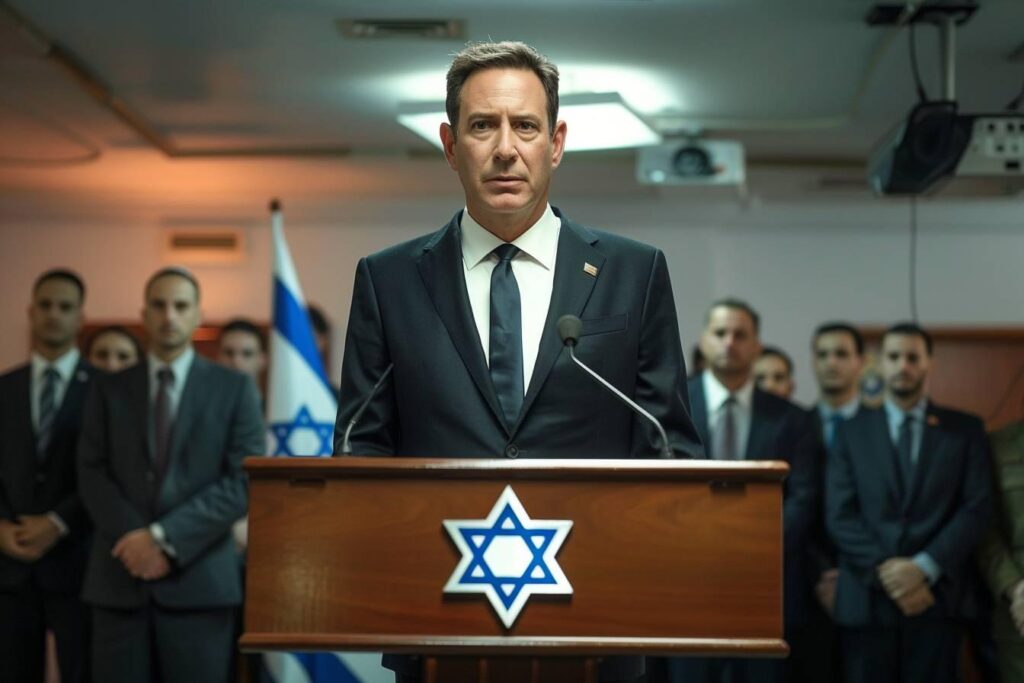The Resilience and Commitment of Jewish Veterans: A Reflection on Identity and Service
In an increasingly polarized world, the voices of Jewish veterans in the United States resonate with a unique timbre of patriotism and cultural identity. Andrea Goldstein and Steven Katz, both Jewish and former members of the U.S. military, provide a compelling narrative about their experiences, pride, and the complex interplay between their American citizenship and Jewish heritage.
Service Above Self: Jewish Veterans on Patriotism and Identity
Both Goldstein and Katz describe their decision to join the military as stemming from deep-seated values of duty and service to their country. Despite initial concerns from their families—a reflection of the historical apprehensions some Jewish communities have towards military service due to past persecutions—their stories are ones of commitment and courage.
Their narratives challenge a common misconception that Jewish Americans might hold divided loyalties between the United States and Israel. Instead, they emphasize that their service was an embodiment of their American patriotism, underpinned by constitutional rights that protect their religious freedom.
Finding Sanctuary: The Military as a Safe Haven
Interestingly, both veterans point out that within the ranks of the military, they found a refuge from anti-Semitism more reliably than in some supposedly progressive civilian spaces. College campuses and certain liberal communities, often perceived as bastions of inclusivity, have sometimes left Jewish individuals feeling alienated, especially those who openly support Israel’s right to exist.
This observation raises important questions about the real scope of inclusivity practiced in various American institutions and whether some progressive agendas inadvertently marginalize certain groups.
The Challenge Within: Rising Anti-Semitism and Misunderstood Zionism
Goldstein’s and Katz’s experiences bring to light another disturbing trend—the rise of anti-Semitic sentiments under the guise of political criticism, particularly regarding Zionism. They argue that the term Zionism has been misconstrued and weaponized by certain factions, distancing it from its original meaning related to Jewish nationalism and the safe haven concept of Israel.
This distortion has not only affected how Jewish individuals are perceived but has also sown division within communities that traditionally champion human rights and equality.
A Call for Unity Against Extremism
The authors passionately call for all Americans, regardless of political affiliation, to reject extremist views that foster intolerance. This plea is not just about protecting Jewish Americans; it’s about maintaining the integrity of American democratic values at large.
They stress that combating anti-Semitism is not a partisan issue but a national imperative that requires collective action from both political conservatives and liberals alike.
Reflections on Duty and Advocacy
In concluding their discussion, Goldstein and Katz reflect on how their military service was not only a professional duty but also a personal crusade against intolerance. They view their roles in the military as part of a broader commitment to fight against all forms of bigotry, advocating for a more inclusive society where every citizen is respected regardless of their background or beliefs.
Inspiring Future Generations
The stories of these Jewish veterans are more than individual accounts; they serve as powerful catalysts for broader discussions on identity, patriotism, and civic responsibility. By sharing their journeys, Goldstein and Katz not only highlight the challenges faced by Jewish Americans but also illustrate how resilience can forge pathways to understanding and mutual respect among diverse communities.
Moving Forward: The Role of Education and Dialogue
To combat ignorance and intolerance effectively, there is an urgent need for enhanced educational programs that accurately portray both historical events and contemporary geopolitical issues involving Jewish communities worldwide.
Moreover, fostering open dialogues that explore these complex themes in schools, universities, and public forums can help demystify Jewish experiences and dismantle prejudices. This approach not only benefits Jewish Americans but enriches the entire nation by cultivating a more informed and empathetic citizenry.
Conclusion
The courage demonstrated by Jewish veterans like Andrea Goldstein and Steven Katz in sharing their stories provides a beacon of hope. It reminds us that at the heart of service—whether military or civic—is a commitment to uphold the values we cherish as a society. As we move forward, it becomes imperative for each American to reflect on how we can contribute to a more inclusive and respectful national discourse—one where every voice is heard, understood, and valued.



